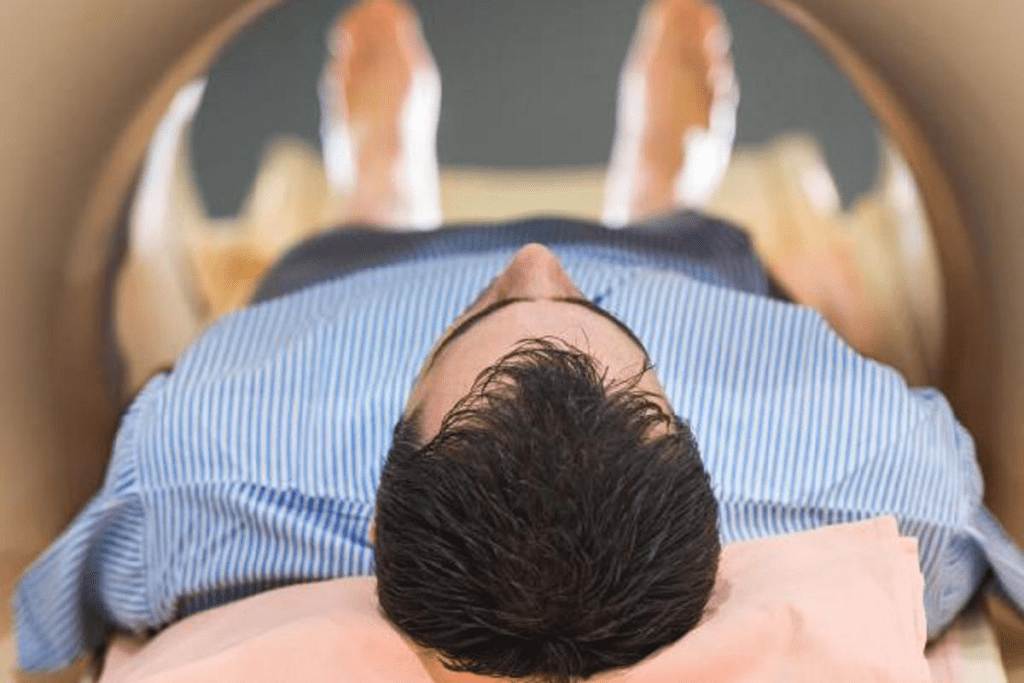Last Updated on November 25, 2025 by
Men who have had their prostate removed face big changes. They might feel different physically and mentally. Yet, it’s possible for them to live well without a prostate, and research shows that life expectancy after prostate removal can be quite favorable, with many men living 10 to 20 years or more following surgery, though they might deal with some side effects.

After having their prostate taken out, men notice big changes in their health. We’ll look at the physical and mental effects of prostate gland removal. This will help you understand what to expect better.
It’s important for patients to understand prostate removal surgery. This surgery, or prostatectomy, removes the prostate gland. It’s a common treatment for prostate cancer.
When the prostate is removed, the surgeon takes out the gland and some surrounding tissue. This surgery can affect a man’s quality of life. Side effects include erectile dysfunction and urinary incontinence.
Studies show that about 61% of men experience sexual impotence. Also, around 26% develop urinary incontinence after surgery.

Prostate removal surgery is often for prostate cancer. It can cure the cancer and improve survival chances. It’s also considered for severe prostatitis or BPH when other treatments fail.
There are several ways to remove the prostate, including open surgery, laparoscopic surgery, and robot-assisted surgery. Each method has its own benefits and drawbacks. For example, robot-assisted surgery is precise but might have fewer complications.
Open surgery is more invasive but sometimes needed. The choice of surgery can affect recovery and side effects. It’s key to understand these differences when deciding.
After prostate removal surgery, patients face many physical changes. These changes include issues with urination and sexual health. Knowing about these changes helps manage expectations and aids in recovery.
Urinary incontinence is a common side effect of prostate removal surgery. Many patients experience incontinence right after surgery. Places like Liv Hospital focus on effective care for these side effects.
Managing incontinence involves pelvic floor exercises, like Kegel exercises. These exercises help control urination. Sometimes, more treatments are needed for ongoing incontinence.

Sexual function changes, including erectile dysfunction, can happen after prostate removal surgery. The impact varies based on the surgery type and the patient’s sexual health before surgery.
Nerve-sparing techniques are used to reduce the risk of erectile dysfunction. Yet, some sexual dysfunction is common right after surgery. Patients should talk to their doctors about managing these issues.
Pain management is key in the early recovery after prostate removal surgery. Most patients start moving the day of surgery and go home the next day. While rest is advised, starting to move again is important to avoid blood clots.
The recovery time varies, but most can get back to normal in a few weeks. Doctors use various pain management methods to keep patients comfortable. It’s vital to follow the doctor’s advice for a smooth recovery.
It’s essential for patients to follow their healthcare provider’s instructions closely to ensure a smooth and uncomplicated recovery.
Prostate removal surgery starts a new chapter in a man’s life. It brings physical changes that affect how he urinates and has sex. Men must adjust to these changes as they recover.
Most men see their urinary incontinence improve within a year, often in months. Treatment options are there to help. About 96% of men regain control of their bladder two years after surgery.
But, this number can drop to around 90% in longer-term studies.
Sexual function recovery is a big worry for many men after prostate removal. Research shows about 63% of men regain erectile function two years after surgery. Erectile dysfunction is common, but treatments can help.
Some men may face permanent side effects like ongoing urinary incontinence and erectile dysfunction. Knowing these risks is key to managing expectations.
Men should talk to their healthcare provider about their risks and outcomes. This way, they can prepare for the long-term changes after prostate removal surgery.
Prostate removal surgery is a big deal for patients and doctors. It’s often done to treat prostate cancer. Let’s look at how it affects life expectancy.
Yes, men can live without a prostate. Removing it doesn’t shorten life. In fact, it can save lives for men with prostate cancer. This is true when the cancer is caught early and the prostate is removed.
Research shows that removing the prostate might even extend life for healthy men. This is because it removes the cancer risk. But it depends on the man’s health and the cancer’s stage.
Survival rates after surgery are good, especially if cancer is caught early. The risk of cancer coming back varies. It depends on the cancer’s stage and grade, and the man’s health.
Men with early-stage prostate cancer often do well after surgery. For example, those with low-risk cancer have a high chance of being cancer-free.
Several things can affect how long a man lives after surgery. These include:
Men who are healthy and have early-stage cancer tend to live longer.
Prostate removal surgery can treat cancer well. But it’s also important to think about life after surgery. Side effects like urinary issues and erectile dysfunction can affect quality of life. Yet, many men manage these well.
Living a healthy lifestyle helps too. Eating right and exercising regularly can improve life after surgery.
The emotional and psychological effects of prostate surgery are as big as the physical ones. Men who have prostate removal surgery often feel a mix of emotions. They might feel relieved or worried about the future.
Some men say their lives were “ruined” by prostate surgery. They face changes in how they urinate and have sex, which can upset them. It’s important to recognize these feelings and find support.
Adjusting to the effects of prostate removal on life can be tough. But with the right help and resources, men can cope with these changes.
After prostate surgery, men might deal with anxiety and depression. It’s key for them to have access to mental health help.
Not all changes after surgery are bad. Many men feel less tired and sleep better after recovering. These positive changes can really improve their overall well-being and life quality.
To keep emotional well-being after prostate surgery, men need to use several strategies. These include:
By using these strategies, men can handle the emotional and psychological challenges of prostate removal surgery better.
Prostate removal affects more than just health. It can change how we interact socially and our financial stability. Men facing prostatectomy deal with recovery and life changes.
Prostate removal can alter intimate relationships. Side effects like erectile dysfunction and incontinence are common. These changes might affect a man’s social life, requiring adjustments in personal relationships.
Support from loved ones is key during this time. Talking openly about surgery challenges helps keep relationships strong.
Prostatectomy can be costly. Surgery expenses, lost income, and managing side effects add up. Men might need to take time off, affecting their careers and finances.
Liv Hospital offers full care, including financial support. Knowing the costs and planning can lessen the economic burden.
Men need a strong support network for prostate removal surgery. This includes medical, emotional, and psychological support from healthcare, groups, and family.
Open communication is essential for men and their partners after prostate removal. Discussing side effects and needed support can strengthen relationships and improve well-being.
We urge men and their partners to share their experiences. Seeking support from healthcare and groups can build a stronger community.
Prostate removal surgery is a big deal for men. It can change their lives a lot. Knowing what happens when the prostate is removed is key for those thinking about it or who have had it done.
We’ve looked at the physical, emotional, and social effects of prostate removal. Life expectancy after surgery depends on many things. This includes why the surgery was needed and the person’s overall health.
Yes, the prostate can be removed, and for many, it’s a lifesaver. There are challenges, but with the right support, men can do well after surgery. Knowing what to expect helps men prepare for their journey.
Choosing to have prostate removal surgery is a big decision. We hope this info helps men understand what’s involved. This way, they can make choices that are best for their health and happiness.
Removing the prostate can change a man’s life a lot. He might have trouble controlling his urine or have sex problems. There could also be long-term effects.
Yes, men can live without a prostate. But surgery can affect their life in many ways. It can change how they feel physically and mentally.
Side effects include trouble getting an erection and losing control of urine. These issues can last a long time.
Surgery can change how long a man lives. It depends on the cancer’s stage and his overall health.
Surgery can make men feel anxious or depressed. But it can also help them feel less tired or sleep better.
Surgery can change how men feel about sex and their relationships. It can also affect how they interact with others.
Surgery can be very expensive. It can also lead to lost income and ongoing medical bills.
Yes, there are many resources for men after surgery. They can find counseling, support groups, and online help.
Yes, the prostate can be removed in different ways. Each method can affect the patient differently.
Recovery times vary. Men usually go through an initial healing phase. Then, they adapt physically and may face long-term effects.
Men can find help by talking to counselors, joining groups, and using stress-reducing activities. Meditation and exercise can help too.
Subscribe to our e-newsletter to stay informed about the latest innovations in the world of health and exclusive offers!